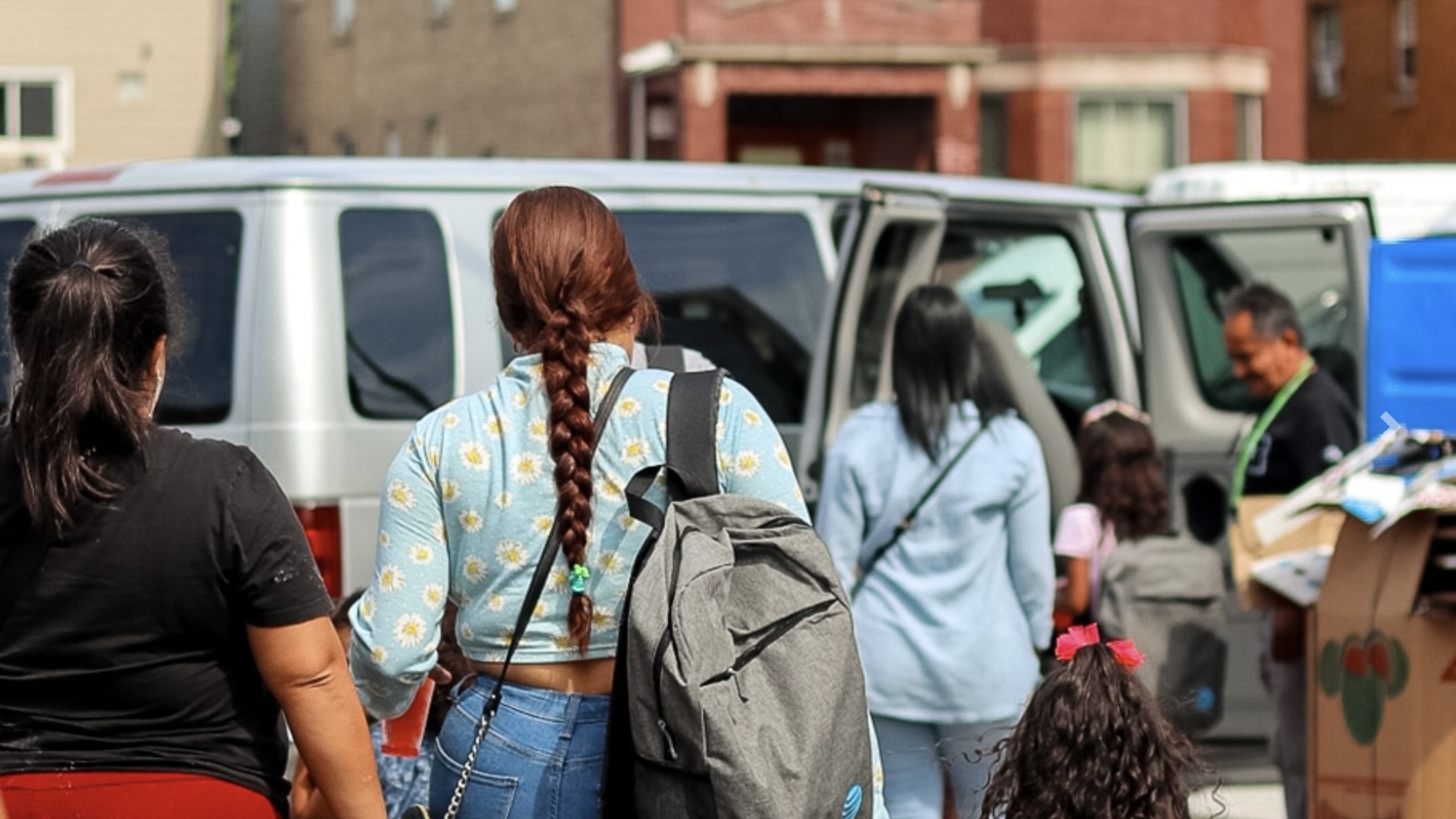The prevalence of measles is currently increasing globally with 128 confirmed cases in the United States as of April 26, 2024. In Chicago, 31 of the city’s 64 total measles cases are from residents of a migrant shelter. The relatively high prevalence of measles cases within the shelter had many racists blaming immigration for the outbreak and advocating for closing the US-Mexico border.
However, the first recorded measles case in Chicago this year was not from a person living at a migrant shelter. Measles was already circulating in Chicago and migrants were susceptible to measles due to a lack of vaccination. Data show that measles is primarily being spread by people traveling abroad to areas with measles outbreaks and returning to the US. These travel destinations are not Latin American and include Britain, Austria and the Philippines).
Epidemics and outbreaks used to limit immigration to the Global North
Similar to the measles outbreak, cholera, polio, bubonic plague, acquired immunodeficiency syndrome (AIDS), and other diseases have historically been blamed on immigrants, including Irish, Italian, Chinese, Haitian and African peoples in the United States. In fact, this approach has affected immigrant legislation in the US like the 1882 Chinese Exclusion Act.
A more contemporary example is COVID-19. Throughout the pandemic, US President Donald Trump described COVID-19 as a “Chinese disease”, fueling an increase in hate crimes against people of Asian descent in the US. The pandemic was further manipulated and used to close the US-Mexico border under Title 42, despite the lower prevalence of COVID-19 in Latin America when compared to the US at the time.
Similarly, during the 2014 Ebola outbreak, many African, European and North American countries closed their borders despite warnings from the World Health Organization. Closing borders often exacerbates epidemics and travel bans are estimated to be insufficient prevention against disease spread. Instead these tactics may cause or sharpen food shortages and economic crises as seen during the 2003 severe acute respiratory syndrome (SARS) outbreak.
The global health agenda has historically been used not to protect populations but to fuel racism and pass reactionary legislation. Hypocritically, the imperialist system upheld by racism is the cause of increased migration and health emergencies.
Vaccination capacities undermined by sanctions
Since August 2022, over 37,000 migrants have been sent to Chicago from the state of Texas, with a majority of these being Venezuelan people. Sanctions imposed by the US and the EU have economically strangled Venezuela and forced many to leave the country, some have come to the US. Sanctions have not only forced migration but have affected Venezuela’s ability to vaccinate properly, targeting key medical resources required for vaccination and treatment.
Measles was declared eradicated from the Americas in 2015. However, from 2017-2020 there was an outbreak in Venezuela. Since 2014, Venezuela’s economy has been subjected to harsh sanctions with increasing during the Trump presidency. Not only has this economic warfare affected the Venezuelan health system by limiting financial resources, it has also blocked the government from buying medicines and medical supplies essential to vaccination campaigns.
US pressure has also led to a deterioration of relations with other countries, causing delays in a shipment of medical supplies (including syringes and measles vaccines) from the Pan American Health Organization (PAHO) in 2019. The origins of the 2017 measles outbreak in Venezuela are still not clear, but it is clear that sanctions have only exacerbated the crisis.
With the recent introduction of the Venezuela Emergency Relief, Democracy Assistance, and Development (VERDAD) Reauthorization Act, an act set to increase US sanctions against Venezuela, it is likely that people’s health and well being in the country will be greatly impacted.
Read more: Hypocrisy at work: anti-migrant politicians call for more sanctions against Venezuela
Increased migration out of countries, like Venezuela, Cuba and Iran, is often as a result of imperialist policies, yet once migrants arrive in destination countries, healthcare and basic necessities are often not met. It was reported to People’s Health Dispatch that there is no health screening process at the border. In fact, migrants are more likely to have their medications taken away upon entry into the US, worsening health conditions.
After arriving in Chicago, migrants are processed in a “landing zone”. At the landing zone, migrants are not screened for health needs, let alone vaccination status. Vaccination of migrants only became of interest to the City after measles cases were reported in a shelter. Several migrants in Chicago have reported to People’s Health Dispatch that obtaining medical care is difficult. This lack of healthcare provided leaves migrants vulnerable to illnesses. Once again, systemic violence has deleterious effects on migrants’ health outcomes.
The only way to meaningfully address the measles outbreak in Chicago is to provide migrants with dignified lives, meaning providing jobs, housing and healthcare.
People’s Health Dispatch is a fortnightly bulletin published by the People’s Health Movement and Peoples Dispatch. For more articles and to subscribe to People’s Health Dispatch, click here.





